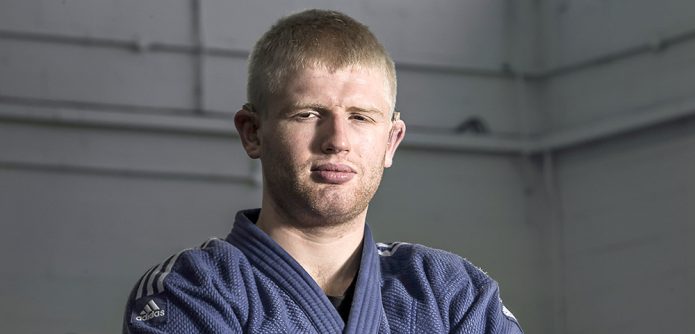The Tokyo 2020 Olympic and Paralympic Games will go down in history as the first Games to be postponed, and the first to be carried out with empty stadiums. The preparation for the year 2020 was immense, with a huge effort from the Japanese government to prepare the country for the expected influx of tourists, here to attend events—as well as the athletes taking part in them.
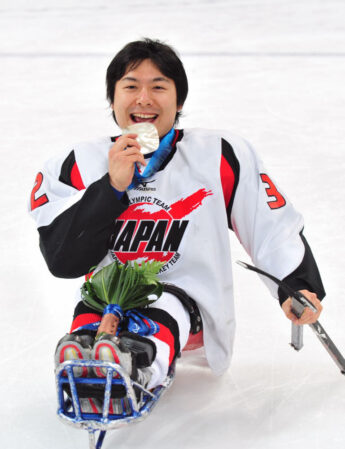
Daisuke Uehara won silver for ice sledge hockey.
One concern was the accessibility of the country for those with disabilities—both Paralympic athletes and tourists alike. Tokyo did its best to diversify and adapt to this challenge.
Almost a year on, when reflecting on the Games, how did Japan do? And has the country done more than increase accessibility—have the minds and attitudes of Japanese people changed? BCCJ ACUMEN spoke with Ichiro Kabasawa, Executive Director of private, non-profit grant-making organisation, The Nippon Foundation, and Caroline Casey, the businesswoman and activist behind the Valuable 500, the world’s largest CEO collective and business move for disability inclusion.
How successful were the 2020 Tokyo Paralympics in terms of helping create an inclusive society in which people with disabilities can actively participate without discrimination?
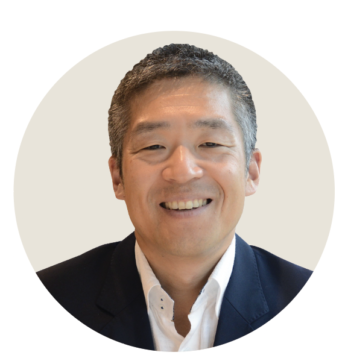 IK: It was definitely a significant event. The Nippon Foundation surveyed 5,216 people to identify changes in their awareness and understanding of diversity and inclusion (D&I) before and after the 2020 Tokyo Olympic and Paralympic Games in both 2019 and 2021. We found that prejudice and discrimination against minorities decreased by 10 percent across the two-to-three-year period, with a particularly strong downward trend among younger respondents in their twenties. In terms of D&I awareness, 40.2 percent of respondents said their understanding of D&I had increased.
IK: It was definitely a significant event. The Nippon Foundation surveyed 5,216 people to identify changes in their awareness and understanding of diversity and inclusion (D&I) before and after the 2020 Tokyo Olympic and Paralympic Games in both 2019 and 2021. We found that prejudice and discrimination against minorities decreased by 10 percent across the two-to-three-year period, with a particularly strong downward trend among younger respondents in their twenties. In terms of D&I awareness, 40.2 percent of respondents said their understanding of D&I had increased.
CC: A standout from the Tokyo Games has been the launch of the #wethe15 campaign—the world’s biggest multi-stakeholder coalition for disability inclusion—which will run from the Tokyo 2020 Olympic and Paralympic Games to the LA 2028 Summer Olympics. Leveraging the unique influence of the Paralympic Games as the third most-watched broadcast event, #wethe15 is building a movement to ignite a global wave of practical commitments across all industries to end disability exclusion. We are particularly excited to see the expansion of #wethe15 beyond sports, to engage key stakeholders to tackle disability exclusion in all aspects of life.
How could Tokyo (and Japan) do better for people with disabilities?
IK: I have a friend who is a wheelchair user, businessman and accessibility consultant for various organisations and businesses. When he attended the Rio 2016 Summer Olympics, he reflected that although the city was not wheelchair accessible, people would immediately rush to assist wheelchair users. On the other hand, in Japan, although barrier-free facilities are increasing, I feel that the “barrier-free” mentality has not progressed to the same extent. There may still be prejudice beyond simply not knowing how to treat people with disabilities. I believe that the first step is not to understand our differences, but to recognize that “we don’t know the difference” first.
 CC: Every country, culture and industry can improve. I cannot speak to what Japan could do better because I am not Japanese. But I can certainly stress that this is a time for radical transformation and collaboration. Japan, through The Nippon Foundation and its visionary leader Ryoichi Sasakawa, are a Global Impact Partner of the Valuable 500. The 53 Japanese companies that are part of the Valuable 500’s global community will play a vital role in our ambition to transform the business system to include disabled employees, customers and suppliers. But for any country to progress, it must work in partnership with disabled people. It must treat them as equals and part of the solution, as well as consult with disability-led organisations to create change.
CC: Every country, culture and industry can improve. I cannot speak to what Japan could do better because I am not Japanese. But I can certainly stress that this is a time for radical transformation and collaboration. Japan, through The Nippon Foundation and its visionary leader Ryoichi Sasakawa, are a Global Impact Partner of the Valuable 500. The 53 Japanese companies that are part of the Valuable 500’s global community will play a vital role in our ambition to transform the business system to include disabled employees, customers and suppliers. But for any country to progress, it must work in partnership with disabled people. It must treat them as equals and part of the solution, as well as consult with disability-led organisations to create change.
What differences are there in how the UK and Japan treat residents and visitors with disabilities? Which other country or city leads the way in this?
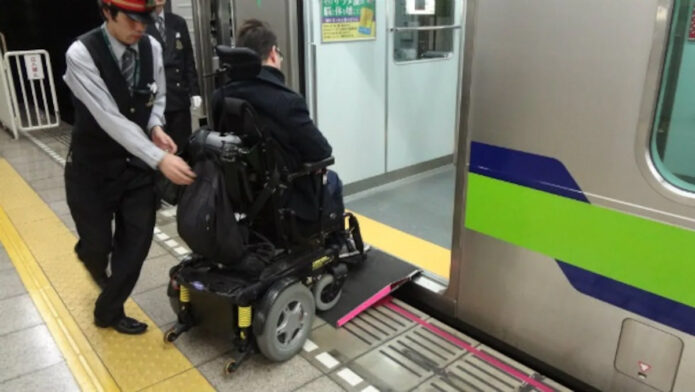
Wheelchair access is common on subways and trains in Japan.
IK: Many people in Japan still think of support for people with disabilities from a welfare perspective. Companies used to hire people with disabilities only to meet the legally mandated employment rate. But the coronavirus has been a catalyst for transformation. As the economic situation worsened, more and more companies started rethinking what kind of work they can offer to each individual. As the employment of people with disabilities accelerates, the awareness of those who hire them will also change. To change the consciousness of the majority is essential for the creation of an inclusive society.
CC: We can spend time comparing and pitting companies and countries against each other, but I do not believe it is helpful. It creates winners and losers. Disability is multifaceted and there is no simple solution or answer. The disability lived experience is so vastly different from one individual to the next that disability empowerment and inclusion can feel out of reach. But not if we shift our mindset from the medical model to the societal model of disability. This means it is not the person with the disability that has the problem, but it is the way the world and society were designed that is the barrier. If we design our travel industry, our companies and our societies with consideration of all human beings, then these barriers are eliminated. And the way in which we can make that a reality is to ensure people with disabilities are included in this design and development.
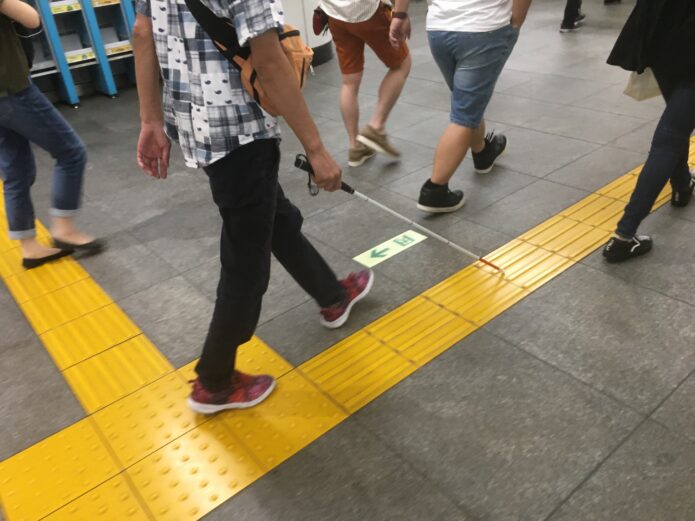
Yellow tactile tiles on pavements and station platforms allow those with visual impairments to navigate the way ahead.
What can businesses do to improve the situation?
IK: For more than 50 years, support for people with disabilities has been a major pillar of The Nippon Foundation. Overseas, The Nippon Foundation has focused its efforts on higher education, with the aim of fostering leaders from people with disabilities. As a result, more than 3,000 leaders with disabilities have been trained in various countries. But we also believe that change cannot occur unless the business sector—which is the majority of society—changes. Accordingly, we launched a partnership with the Valuable 500 and are working together to globally promote social participation for people with disabilities.
CC: Businesses play a crucial role in driving the inclusion agenda. Those in positions of authority, who self-identify as disabled, have the power to shape their workplace’s culture by publicly disclosing their disability. Not only does this top-down approach showcase the successes available to disabled people, but it also starts an open dialogue around disability. The Valuable 500 also encourages leaders to prioritise maintaining a clear sight on D&I progress, so that disability is not neglected when other topical agendas demand attention.
Please tell us about any major initiatives or events coming up for helping those with disabilities to be better accepted and accommodated in society.
IK: The Nippon Foundation is focusing on all forms of diversity, including disability, and communicating the importance of a diverse society through a variety of performing arts events, including dance, theatre, fashion and music at the True Colors Festival. We are also planning to publish a book that will provide guidelines for accessibility, including venue design and directions so that everyone can enjoy the events regardless of disability.
CC: Our mission at the Valuable 500 is to raise global awareness of the problems people with disabilities face, and to do so, we have a powerful programme of events across the year for key business audiences. It is important to us that we continually engage with business leaders and stakeholders to ensure that disability remains a high priority on their agenda. I am excited for what is to come, and for the array of initiatives we have on the horizon.

